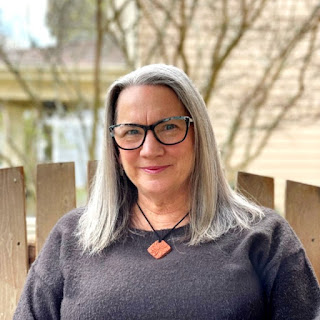They’ve Graduated! What Next? by Paula Lowther
Having a child with a developmental disability is a journey many of us were not prepared to take. ”On the job learning” becomes the norm through each stage of our precious children’s lives. We read, take classes, meet other parents, join Facebook Groups, talk to therapists, teachers and school counselors, and surf the internet immersing ourselves in self-education. If we’ve done our homework, we know that federal regulations will permit a child with a disability to stay in public education until the end of the school year in which the child reaches the age of 22 (https://ed.sc.gov). This gives the family more time to plan and prepare. This also needs to be tailored to the needs and desires of the child.
We are fortunate in South Carolina, as there are two model collegiate programs designed for young adults with special needs, one of which is located right in York County at Winthrop University: WinthropLife. The other is the ClemsonLife program at Clemson University. Both programs meet the requirements to be a federally designated Comprehensive Transition Program, which translates to dollars for school through grants and financial aid. Each of the programs have detailed web sites where they share all you need to know about your child’s eligibility.
Not all children are eligible or interested in such programs, though. What then? Be sure to familiarize yourself with the South Carolina Department of Disabilities and Special Needs website. There is tons of information there, including a page for the Home and Community Based Services waiver program. Did you know that prior to 1981, institutionalization was the only program available, because there were no services available in the community at that time. While we are thankful for the array of services and projects our children can participate in at this time in York County, it is not a perfect situation. In this post-COVID era, staff shortages are common in the caregiving workforce, which creates a gap in care. There is much to be done in growing this workforce, and perhaps training programs can be cultivated for high school students who may be interested in these roles. Regardless, be sure to get your child enrolled for services by calling 1-800-289-7012 to begin the process.
Some states have programs where family members can be paid caregivers for their loved ones. Sadly, the Carolinas have not joined their ranks. Currently the twelve states include Colorado, Kentucky, Maine, Minnesota, New Hampshire, New Jersey, North Dakota, Oregon, Texas, Utah, Vermont, and Wisconsin. There has never been a more opportune time for parents to become politically active on behalf of their children. Learn who your state legislators are, and write, call, and ask for an audience to present your case and petition for expansion of services.
Creativity is key as you brainstorm ways to meet the needs of your young adults. Pooling resources and services with other parents, seeking out HUD housing, and the creation of innovative models that may combine elder-care and young adults with special needs- Get creative! People need not live in isolated “mono-chromatic” communities. UNC Center for Excellence in Community Mental Health is creating a “Tiny Home Village” for those with mental health issues.
https://www.med.unc.edu/psych/cecmh/services/community-services/tiny-homes-village/
This is just one example of creativity at work in the Carolinas. Another is the HOPE-NC organization, https://www.hopenorthcarolina.org whose mission statement is “Creating inclusive communities where people of all abilities and ages experience a sense of belonging through community reimagined."
In South Carolina, there are currently multiple providers of residential services, including supportive and independent living offering different levels of support. Your local Adult Enrichment Center (AEC) can provide job training services. As a parent or caregiver, knock on doors and advocate for your young adult, and create opportunities at places of service that are open to hiring those with developmental disabilities. Our family secured positions for our daughter at both Harris Teeter, and then Publix. She was collectively employed at these two stores for seven years, before being trained for a job at the Humane Society of Kershaw County where she was the “Cat Lady!” She was responsible for the cat room, cleaning litterboxes, feeding and loving her four-legged wards.
SC Public Radio has a 4-minute piece on the push for disability housing communities in SC amid limited options. That was aired in March of this year. Here is the link: https://www.southcarolinapublicradio.org/sc-news/2023-03-07/renewed-push-for-disability-housing-communities-in-sc-amid-limited-options
The possibilities are endless, but it will take collaboration, creativity and innovation. Are you up for it?
List of resources:
ClemsonLife Program- https://www.clemson.edu/education/programs/programs/culife
Winthrop Life Program- https://www.winthrop.edu/coe/winthroplife/
SC Dept of Education- https://ed.sc.gov
SC Department of Disabilities and Special Needs- https://ddsn.sc.gov
UNC Center for Excellence in Community Mental Health- Tiny Homes Village- https://www.med.unc.edu/psych/cecmh/services/community-services/tiny-homes-village/
HOPE-NC- https://www.hopenorthcarolina.org
SC Adult Enrichment Centers- Day programs and job training services plus!- https://www.adultenrichmentcenters.org/about/
Paula Lowther is a nurse practitioner, writer, and patient safety advocate currently based out of Fort Mill, South Carolina and is the mother of an adult daughter with special needs, and a typical young adult daughter.
Creating inclusive communities where people of all abilities and ages experience a sense of belonging
COMMUNITY REIM
https://www.winthrop.edu/coe/winthroplife/
https://www.clemson.edu/education/programs/programs/culife

